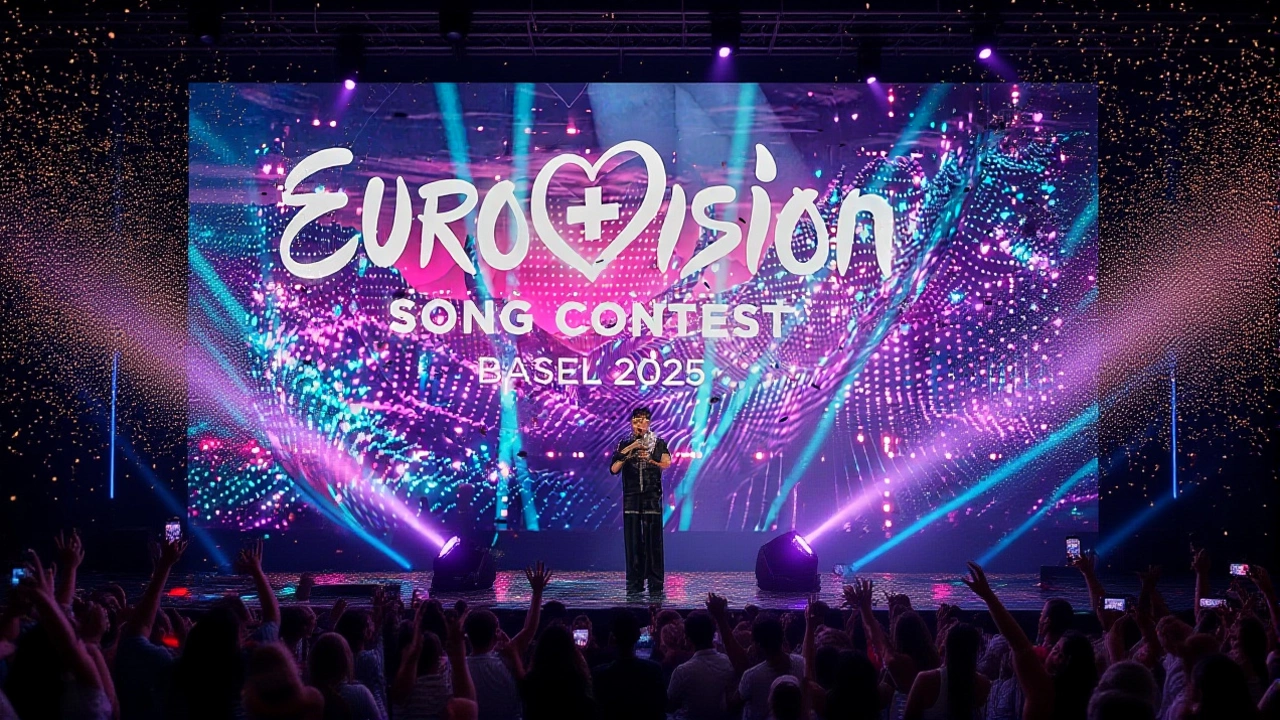When the European Broadcasting Union unveiled sweeping new rules for the Eurovision Song Contest on November 15, 2025, it didn’t just tweak a rulebook—it rewrote the spirit of a global spectacle. The changes, announced at the EBU’s headquarters in Geneva, came in direct response to the chaos that engulfed the 2024 contest in Malmö, Sweden, where protests, armbands, and banners turned a music competition into a geopolitical flashpoint. For the first time since 2004, the EBU is treating political expression at Eurovision not as a gray area—but as a fireable offense.
What Changed, and Why It Matters
The new rules, approved unanimously by all 56 member broadcasters on November 14, 2025, are unambiguous: no political statements during performances, interviews, or official events. Violators face immediate disqualification. Stage props and costumes now require pre-approval under Rule 4.7.1, with anything deemed ‘potentially inflammatory’—like keffiyehs, flags, or slogans—automatically rejected. And there’s a financial sting: a €500,000 penalty fund, overseen by former Swedish Supreme Court Justice Karin Söderström, will be used to cover security overruns caused by rule-breaking broadcasters.
It’s not just about punishment—it’s about prevention. The EBU says it documented 17 specific breaches during the 2024 contest, viewed by 163 million people worldwide. That includes Croatian viewers seeing ‘Free Palestine’ banners during a live broadcast, Denmark’s delegation wearing black armbands during voting on May 11, 2024, and Israeli performer Eden Golan performing under 200 armed guards after death threats. The protests outside Malmö Arena drew 1,200+ demonstrators and led to 47 arrests. The cost? An extra €3.2 million in security, pushing the total budget to nearly €48.3 million.
Israel Stays—But Under New Constraints
Here’s the twist: despite petitions signed by over 120,000 people demanding Israel’s exclusion, the The Israeli Public Broadcasting Corporation (Kan) remains eligible for the 2026 contest in Basel. The EBU insists eligibility is tied to membership status—not political alignment. Kan, which replaced the defunct IBA in 2017, is still an active EBU member. But its director general, Tzachi Braverman, made it clear: ‘We accept the rules but reserve the right to challenge provisions infringing artistic freedom.’
That tension is likely to simmer. The new rules explicitly ban references to ‘ongoing armed conflicts’ in performances—a clause that could impact Ukraine, Serbia, and other nations with active war zones in their recent histories. Ukraine has competed every year since 2003. Serbia since 2007. Both have used their stages to honor victims or call for peace. Will those moments now be censored? The EBU says it’s not about silencing grief—it’s about preventing exploitation. But critics argue the line is blurry.
Monitoring, Training, and the Social Media War
The EBU isn’t just policing the stage. Starting January 1, 2026, all delegations must complete mandatory sensitivity training led by British-Egyptian cultural consultant Leila Hassan. Meanwhile, EBU-appointed moderators will monitor social media in real time to shut down coordinated campaigns like the #BoycottEurovision hashtag, which generated 2.7 million tweets during the 2024 final. That’s not just noise—it’s organized disruption.
And the security footprint is growing. For the 2026 contest, venues must include a minimum 500-meter protest zone and deploy over 1,000 private security personnel. Martin Österdahl, EBU Head of Delegations, confirmed Basel’s venue selection process began the day after the rules were announced. ‘We’re not trying to suppress dissent,’ he said. ‘We’re trying to keep the music playing.’
Who’s Watching—and What They Think
Academics are skeptical. Professor Anna Käll of Lund University, whose analysis was published just days before the announcement, predicts a 15–20% drop in engagement from politically aware viewers. ‘When you turn art into a compliance checklist,’ she said, ‘you alienate the very audience that makes Eurovision feel alive.’
The EBU received 89 formal complaints during the 2024 contest—a 300% jump from 2023. Thirty-seven cited ‘political interference’ tied to Israel’s participation. But here’s what’s rarely said: many of those complaints came from broadcasters who felt their own cultural expressions were being unfairly targeted. A Spanish delegation reportedly had a rainbow flag removed from a prop. A Portuguese entry’s lyrics about ‘freedom’ were flagged for ‘ambiguous political tone.’
‘It’s not just about Israel,’ said one anonymous broadcaster official. ‘It’s about who gets to define what’s political. And right now, the EBU is letting fear write the rules.’
What Comes Next
All 40 participating broadcasters must sign the amended participation agreement by December 15, 2025. Kan submitted theirs on November 18, 2025—early, but with a legal disclaimer attached. The EBU says no broadcaster will be allowed to compete without signing. But what happens if a country refuses? Expulsion is possible, but unprecedented. The last time a country was barred was in 2009, when Belarus was suspended for vote-rigging.
For now, the contest moves forward—with more security, fewer slogans, and a lot more tension beneath the glitter. The 2026 final in Basel won’t just decide Europe’s favorite song. It will test whether a global entertainment brand can survive in a world that refuses to leave politics at the door.
Frequently Asked Questions
Can countries still sing about peace or freedom without getting disqualified?
Yes—but only if the lyrics don’t reference specific conflicts, governments, or ongoing wars. The EBU’s 2026 Rulebook (v.2026.1) prohibits direct or indirect references to ‘ongoing armed conflicts,’ meaning songs about ‘freedom’ or ‘hope’ are still allowed, but phrases like ‘liberate Gaza’ or ‘defend Ukraine’ would trigger disqualification. Context matters, and the Contest Integrity Committee has final say.
Why is Israel still allowed to compete despite the controversy?
The EBU bases participation on broadcaster membership, not political status. Kan has been an active EBU member since 2017, replacing the IBA. Excluding Israel would set a precedent for banning countries based on foreign policy—a move the EBU says would politicize the contest further. They argue neutrality means allowing all members, even when their actions are divisive.
What happens if a country violates the new rules during the 2026 contest?
Immediate disqualification is the first penalty. The €500,000 penalty fund will also be tapped to cover any security overruns caused by the violation. Repeat offenders could face suspension from future contests. The Contest Integrity Committee, chaired by Karin Söderström, will review all incidents within 48 hours and issue binding rulings.
Will this actually reduce protests at future contests?
Unlikely. Protests won’t disappear—they’ll just move outside the venue. The 500-meter protest zones in Basel are designed to contain demonstrations without blocking access. But history shows that when art is censored, activism adapts. Expect more digital campaigns, silent protests, and international solidarity actions. The real battle is no longer on stage—it’s in the court of public opinion.
How will the EBU decide what’s ‘potentially inflammatory’?
A seven-member review panel—including legal experts, cultural consultants, and former contestants—will assess props and costumes before the contest. They’ll use a 12-point checklist based on past incidents, including symbolism tied to conflict zones, national flags used in protest contexts, and slogans with political history. The process is confidential, and decisions are final. Critics call it opaque; the EBU calls it necessary.
Is this the end of Eurovision as a cultural unifier?
Maybe. Eurovision was born after WWII to rebuild ties through music. But in 2025, the world is more divided than ever. If the contest becomes a sanitized, risk-averse spectacle, it risks losing its soul. The question isn’t whether politics belong at Eurovision—it’s whether the EBU can protect the music without pretending the world outside the stage doesn’t exist.

